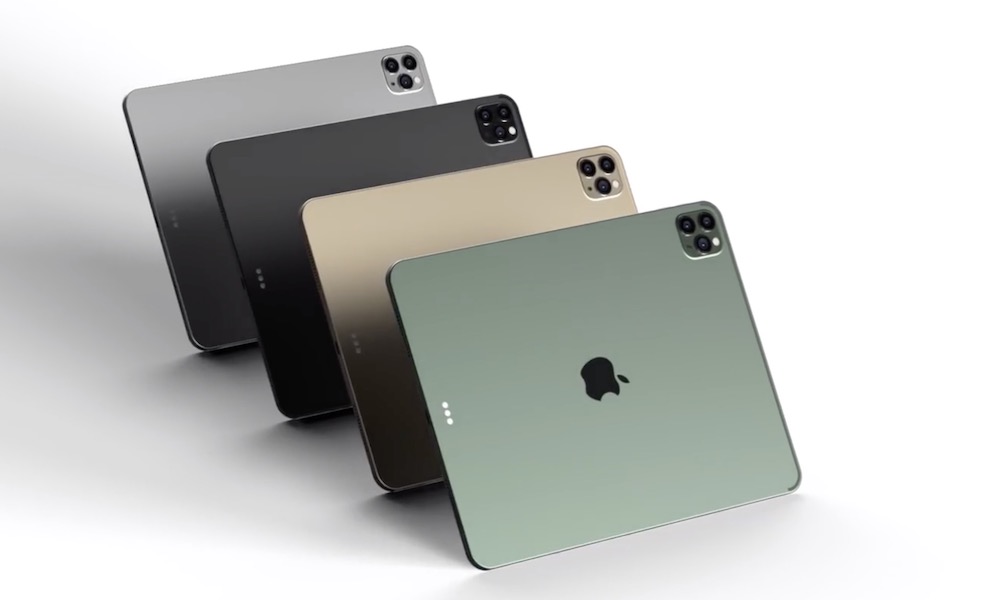Ultra-Fast mmWave 5G Could Come to the iPad Pro First
 Credit: EverythingApplePro
Credit: EverythingApplePro
Toggle Dark Mode
Although 5G iPhones are likely to be all the rage this year, there’s little doubt that Apple is also actively working on bringing 5G to the iPad, and it looks like it’s going to do it in a pretty big way by offering ultra-high-speed 5G support right out of the gate.
According to sources cited by DigiTimes in a new report shared by MacRumors, Apple already has a 5G iPad Pro under development that would include 5G mmWave technology, meaning that it would be able to take advantage of the fastest version of 5G networking, at least in those areas where it’s available.
The report is currently paywalled, but the preview notes that Taiwan’s Advanced Semiconductor Engineering is poised to supply antenna-in-package (AiP) technology for the new 5G iPad as well as the new 5G iPhones.
Although there’s not yet any word on what Apple’s release timeframe for the new iPad models might be, the company is widely expected to debut an iPad Pro this spring, which means it’s theoretically possible that 5G could come to the iPad Pro before Apple even releases its first 5G-capable iPhones.
While this may seem unusual, it’s not entirely unprecedented. The third-generation iPad was actually Apple’s first LTE device back in 2012, released in the spring, five months before the debut of the LTE-equipped iPhone 5.
Certainly, there’s an argument to be made that the iPad benefits from higher-speed cellular networking more than the iPhone, and this seems to be even more true when it comes to the kind of speeds that mmWave 5G will be offering.
While the portion of the report that’s available only talks about mmWave capabilities for now, and doesn’t specify which model of iPad it’s coming to, it’s a pretty safe bet that this will be exclusive to the iPad Pro at first due to the higher production costs, and it’s a given that the 5G iPad Pro will need to offer sub-6GHz connectivity as well for users to fall back to in those areas where mmWave isn’t available — which right now is just about everywhere outside of major urban centres.
mmWave 5G iPhones
What’s also interesting about this report, however, is that it lends more weight to yesterday’s report that Apple will release its mmWave 5G iPhones this fall. Last week, analyst Mehdi Hosseini of Susquehanna predicted that the mmWave version of the 5G iPhone might be delayed until early 2021. However, behind Hosseini’s reasoning for the delay was the belief that Apple was struggling to develop its own AiP modules rather than relying on third-party suppliers.
While DigiTimes doesn’t have the most reliable track record when it comes to detailed predictions, it does have close connections to the Asian supply chain, so its report that the AiP modules are coming from Advanced Semiconductor Engineering for both the iPad and the iPhone is probably accurate, particularly in light of venerable analyst Ming-Chi Kuo’s insistence that all of the 5G iPhones will arrive together this fall.
Due to the nature of mmWave technology, which is considerably more prone to interference from physical objects — even the hand you’re using to hold your iPhones can block the signal — building antennas that provide solid and reliable mmWave 5G signals is a somewhat complex process. Apple is already planning to use Qualcomm’s best 5G chips for this year’s 5G iPhone, but these need to be backed up by a really solid and reliable antenna design lest we see a repeat of the iPhone 4 “antennagate” debacle from ten years ago.
With Apple working on efforts to design its own 5G modem chips, it’s likely true that it’s working on its own antenna designs as well, so Hosseini’s report may have some truth to it, but it’s likely that Apple either abandoned those efforts for this year or that the company is working on its own AiP modules for future iPhone models to be released in 2021 and beyond, possibly to accompany Apple’s first-party 5G modem chip.
[The information provided in this article has NOT been confirmed by Apple and may be speculation. Provided details may not be factual. Take all rumors, tech or otherwise, with a grain of salt.]






